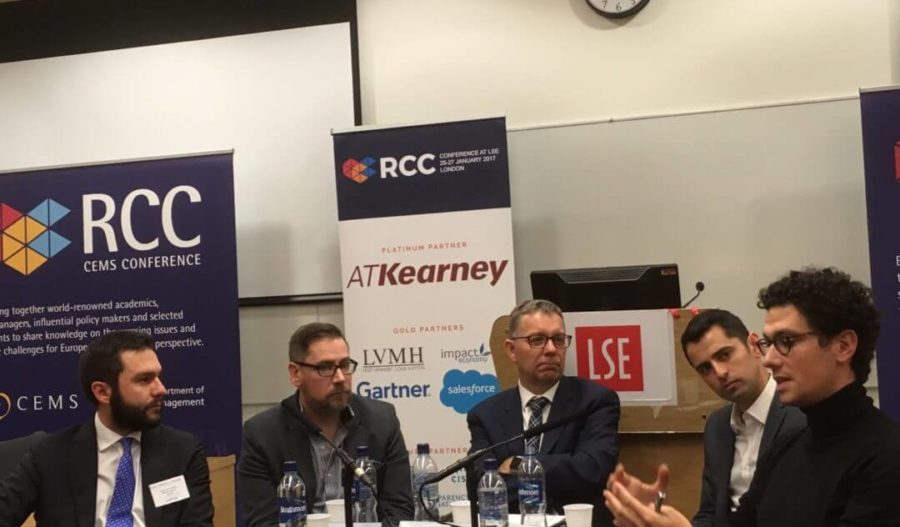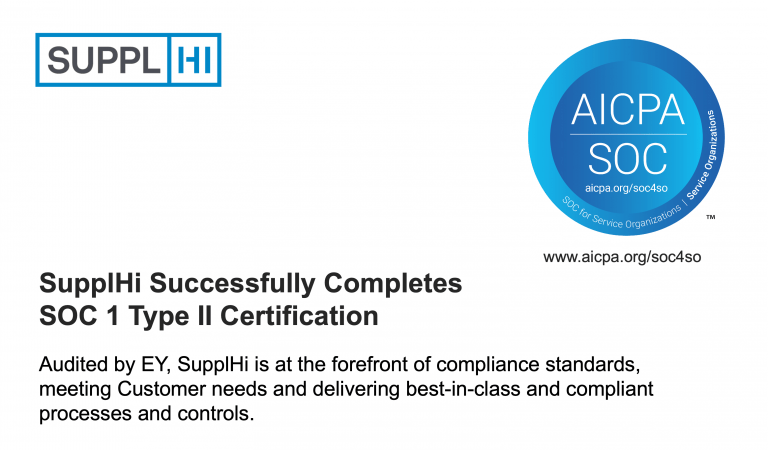On Jan 26th 2017, SupplHi’s Director Giacomo Franchini had the pleasure of sharing the panel with representatives from firms revolutionising infrastructure, programming and software, such as Cisco and Salesforce, and companies which are now disrupting established sectors, such as iwoca. The conference took place in the London School of Economics and was chaired by Information Technology and Disruption professor Mr. Sørensen within the RCC Conference (http://rcc-conference.com/) organized by the CEMS program.
Inspired by the LSE’s school motto Rerum Cognoscere Causas – “to understand the causes of things”, RCC Conference brings together top managers, world-renowned academics, influential policy makers and selected students to debate contemporary issues, collaborate on solutions, and define best practices.
The topic of discussion was Uberization in the B2B world. This peculiar term is now becoming a recurrent theme in this fast-paced business environment guided by technological advancements. As the development of an ever-stronger IT sector has allowed a whole new type of companies to come into existence by creating new markets and reshaping existing ones, multiple chances are being created for smaller, more flexible, businesses to disrupt.
Many interesting themes were mentioned during the discussion, ranging from how the B2B world differs from the B2C one to how established companies such as Salesforce and Cisco are staying ahead of the growing competition. Whilst in the consumer world you may access millions of users, making the loss of a client no issue, in B2B losing a single customer can be a very big deal. This topic was especially underlined by Mr. Franchini and Mr. Dempsey, VP Solution Engineer at Salesforce, as in the industries in which their two firms operate reputation is the key competitive advantage.
As great insights were being shared all four panellists mentioned a customized approach to dealing with issues and clients based on their industry, size and products, but also shared very similar strategies due to the Uberization phenomenon.



